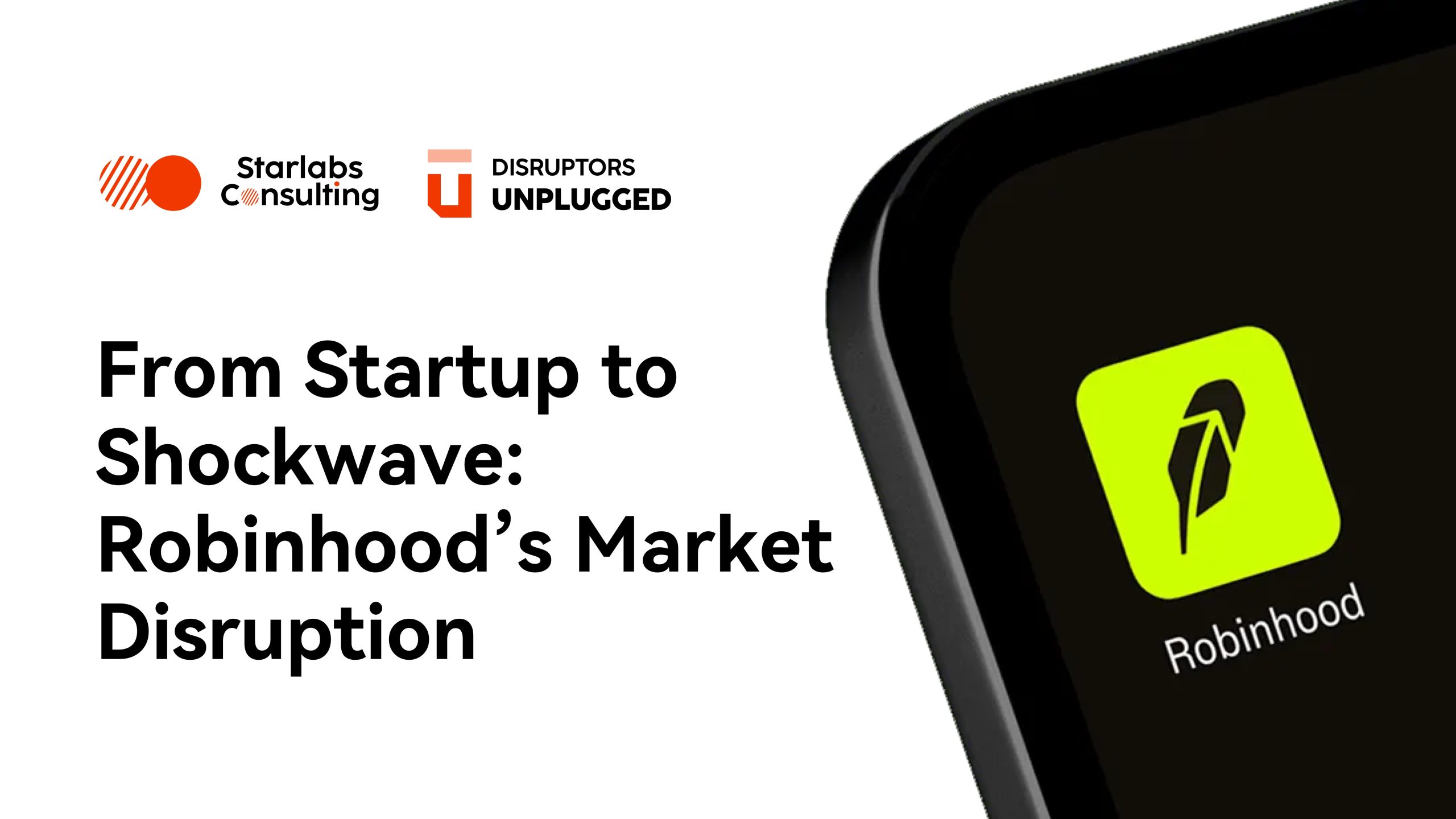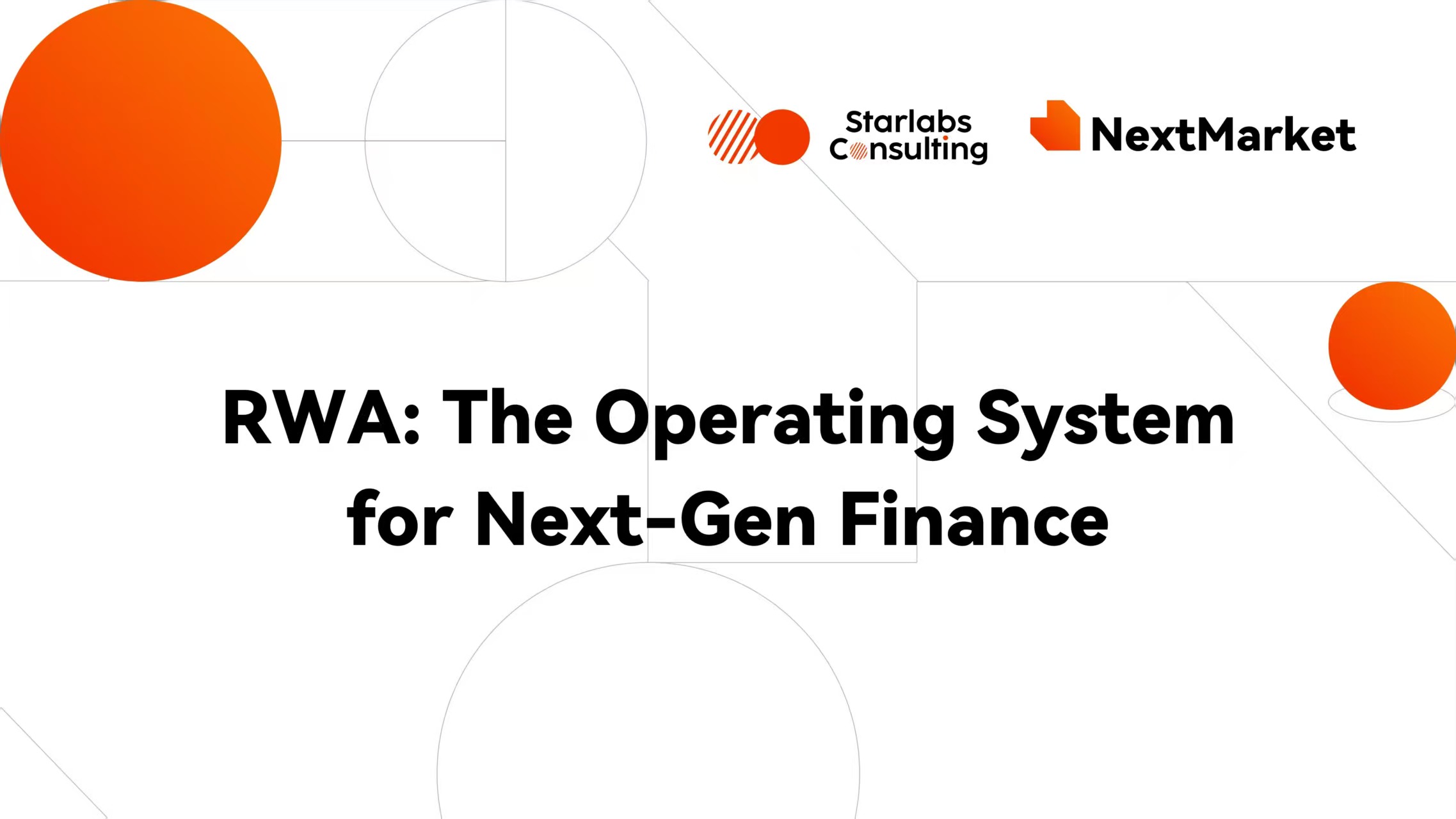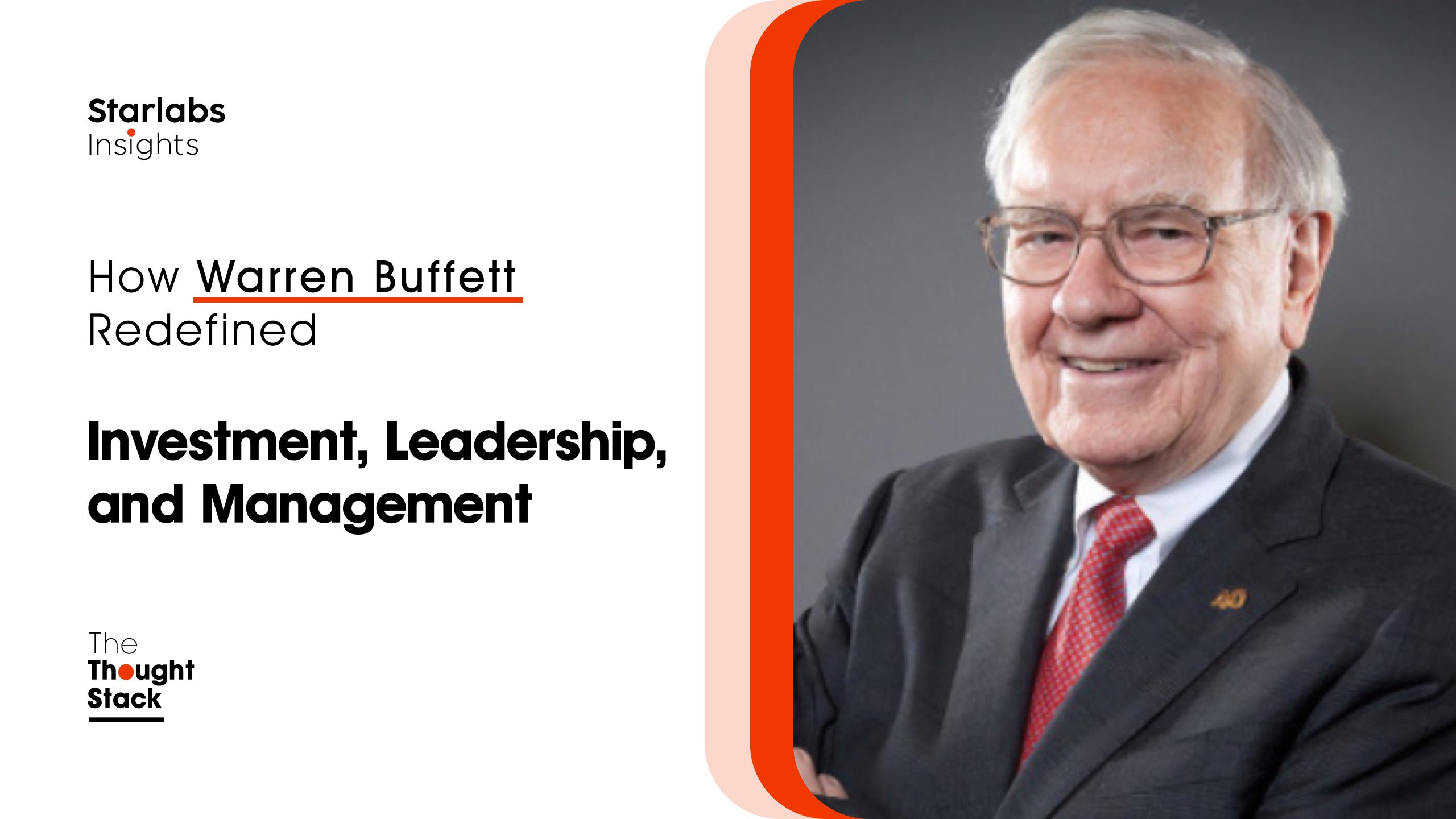
The Eternal Investor: How Warren Buffett Redefined Investment, Leadership, and Management
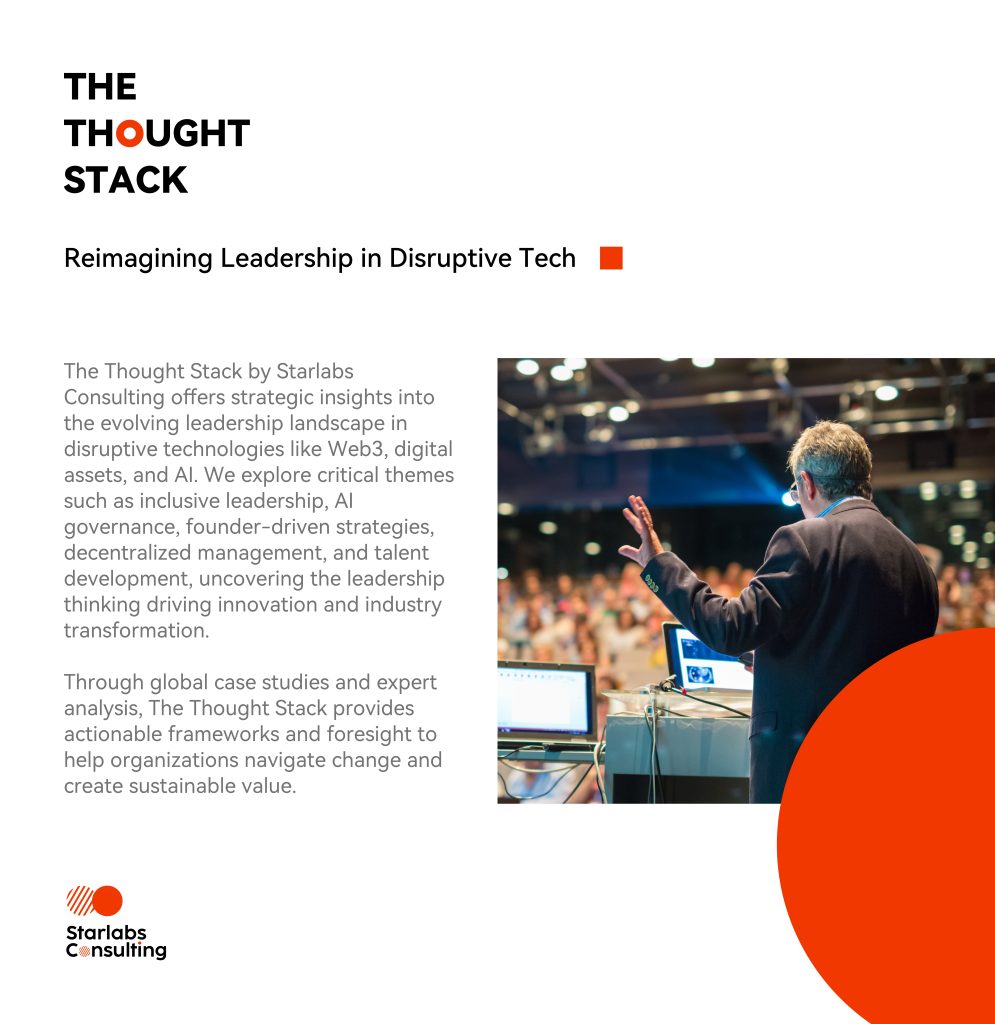
After more than 60 years of shaping the global investment landscape, Warren Buffett — the 94-year-old CEO of Berkshire Hathaway — has announced his impending retirement at the company’s 2025 Annual Shareholders Meeting. While countless pieces have been written about his investment strategies and leadership style, Buffett’s legacy offers enduring lessons that go beyond Wall Street. Even for emerging sectors like Web3, his principles provide a compass to navigate uncertainty, build resilient organizations, and create long-term value.

The Berkshire Hathaway Annual Shareholders’ Meeting, in Omaha, Nebraska, May 3, 2025. REUTERS/Brendan McDermid
Competitive & Conservative: The Buffett Way of Investment
Buffett has long been celebrated as the quintessential value investor and long-term thinker. His success is rooted in a disciplined focus on buying companies that are fundamentally undervalued — businesses with durable competitive advantages, predictable earnings, trusted brands, and exceptional management. Once he invests, he often holds positions for decades, allowing the power of compounding and time to do the heavy lifting.
“Focus on business fundamentals, not market noise.”
At the core of Buffett’s investment philosophy is an unwavering attention to business fundamentals. He is an ardent believer in the concept of the “margin of safety“— investing only when there’s a clear cushion between a company’s market price and its intrinsic value to reduce downside risk.
Even as Berkshire Hathaway evolved, including bold moves into technology giants like Apple, Buffett has remained disciplined about valuations and cautious with leverage. Notably, he only invests in industries and companies he thoroughly understands, a rare act of humility at his level of influence. Buffett’s clarity about his circle of competence is a powerful reminder that great leadership includes knowing what you don’t know.
Delegate & Dedicate: The Buffett Way of Leadership
Buffett’s leadership style is built on trust and autonomy. At Berkshire, he famously delegates decision-making authority to his managers and the leaders of the companies he acquired. From GEICO, Dairy Queen, to BNSF Railway and See’s Candies, Buffet has rarely stepped in to run the subsidiaries himself. Instead, he gives the trusted management team full operational autonomy, focusing only on high-level strategy and capital allocation.
“Find people better than you are, then leave them alone.”
By building and maintaining partnerships grounded in trust and mutual respect, Buffett has quietly assembled one of the most powerful and enduring networks in the business world. While often overlooked in accounts of his legendary career, the relationships he has cultivated have played a pivotal role in his sustained success. These connections are not transactional, but built on shared values, long-term thinking, and a reputation for keeping his word.
His alliance with Charlie Munger, for instance, isn’t just a business partnership but a friendship Buffet called“the best decision I ever made.” For over 50 years, Munger worked alongside him and significantly influenced his investment philosophy. Before Munger, Buffett was a strict Benjamin Graham disciple — hunting for “cigar butt” stocks: deeply discounted companies that offered a few last puffs of value before they died. Yet Munger pushed Buffett to focus on high-quality companies with durable competitive advantages — companies like Coca-Cola, See’s Candies, and American Express.
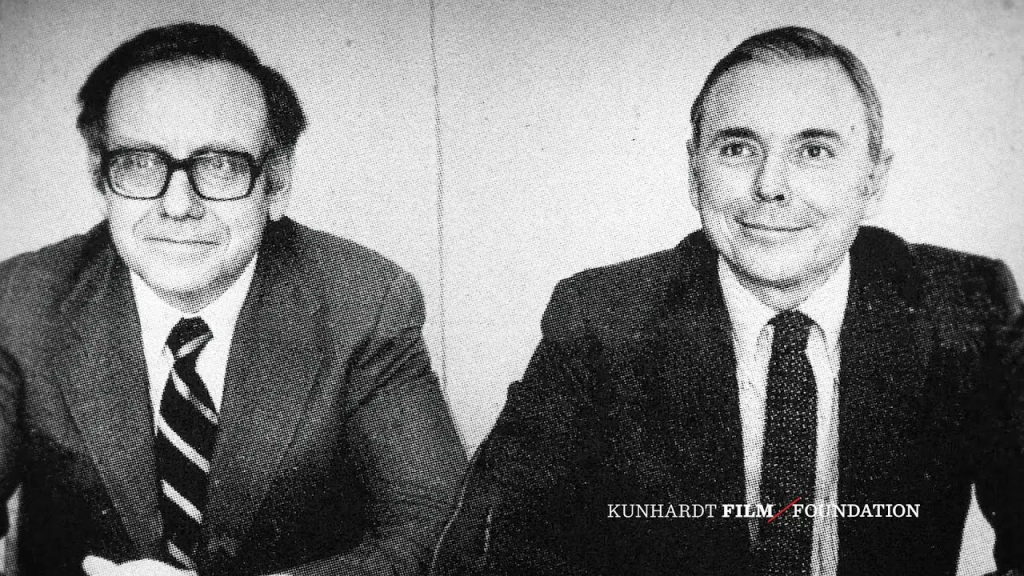
Warren Buffett & Charlie Munger in 1977
More importantly, their partnership has always been built on intellectual honesty and mutual respect. They challenge each other, disagree often, and push each other toward better decisions — but always with deep trust. Buffett has repeatedly said, “Charlie’s the best partner anyone could have. We’ve never had an argument.” Munger, in turn, has called Buffett “the best learning machine I’ve ever seen.”
“A leader is someone who can get things done through other people — and someone who builds a culture where people behave the right way even when no one is watching.”
Ajit Jain, in many ways, is also a powerful example of how a trusting environment within a company can unlock extraordinary human potential. Widely regarded as one of Buffett’s most trusted lieutenants—and frequently mentioned as a top candidate to eventually succeed the nonagenarian CEO—Jain joined Berkshire Hathaway’s small insurance team without any prior experience in the insurance industry. But Buffett, true to his philosophy of valuing character over credentials, recognized Jain’s raw intelligence, integrity, and judgment, and was willing to bet on the person, not just the résumé.
Under Jain’s leadership, Berkshire’s reinsurance operations have become a global powerhouse, consistently delivering billions in underwriting profits. In return for Buffett’s trust, autonomy, and respect, Jain has earned a reputation as “irreplaceable” and Buffett’s “go-to person” for navigating complex insurance challenges. As Jain once put it, Buffett is “the best boss one could ever have”—a statement that carries even more weight when we consider Buffett’s own acknowledgment that Jain would be “rich beyond belief” had he chosen to leave Berkshire. But that is unlikely, given the profound loyalty and shared sense of purpose that define their partnership.
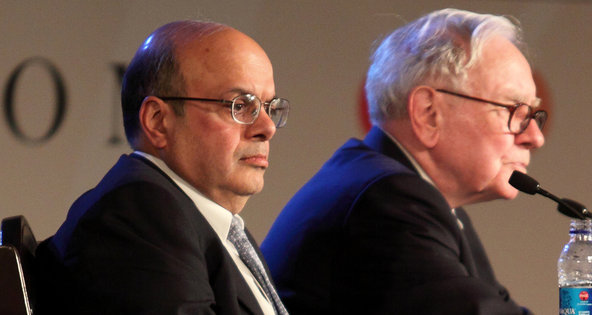
Ajit Jain, left, is widely regarded as one of the top contenders to eventually succeed Warren Buffett as CEO of Berkshire Hathaway BLOOMBERG/Pankaj Nangia
Beyond Berkshire, Buffett has cultivated deep, long-lasting friendships with influential business leaders such as Bill Gates, Katharine Graham, and many others. He has not only helped his longtime friends navigate business and personal challenges but has also pledged the majority of his fortune to the Gates Foundation—one of the largest acts of charitable giving in history. In many ways, Buffett’s network is a living reflection of his most profound investment principle: compound trust over time, and the returns—both financial and human—will be extraordinary.
Culture & Consistency: The Buffett Way of Corporate Management
For the longest-serving CEO in the S&P 500, integrity has always been non-negotiable. Buffett famously said, “In looking for people to hire, you look for three qualities: integrity, intelligence, and energy. And if they don’t have the first, the other two will kill you.”
“Culture, more than rule books, determines how an organization behaves.”
Beyond his focus on honest leadership, Buffett has championed a corporate culture centered on stewardship and trust. He understands that culture, more than rules, determines how an organization behaves.Buffett’s transparent and candid communication style reinforces this culture. He avoids jargon and corporate buzzwords, speaking plainly to shareholders, employees, and the public. His annual letters are also known for their plainspoken tone, humor, and wisdom.
Reputation, in Buffett’s eyes, is the most valuable asset a company owns. This conservative mindset has helped establish Berkshire Hathaway as one of the most trusted names in a notoriously volatile industry. As Buffett puts it bluntly: “Lose money for the firm, and I will be understanding; lose a shred of reputation for the firm, and I will be ruthless.”
“It takes 20 years to build a reputation and five minutes to ruin it.”
His commitment to the long term doesn’t stop at investments — it permeates how he leads people. Buffett consistently encourages his managers to resist short-term market pressures and ignore the obsession with quarterly earnings.
Nevertheless, Buffett doesn’t just tell his managers to think long-term — he demonstrates it through his own actions. He holds investments and relationships for decades, showing patience and resilience even when markets panic. In fact, many of his greatest business successes have only been possible because of his consistent long-term approach. When Buffett first bought Coca-Cola stock in the late 1980s, for example, the company was recovering from the 1987 market crash. “More than three decades later, Coca-Cola remains one of Berkshire’s largest holdings and, in Buffett’s eyes, the ‘ultimate durable brand.’”
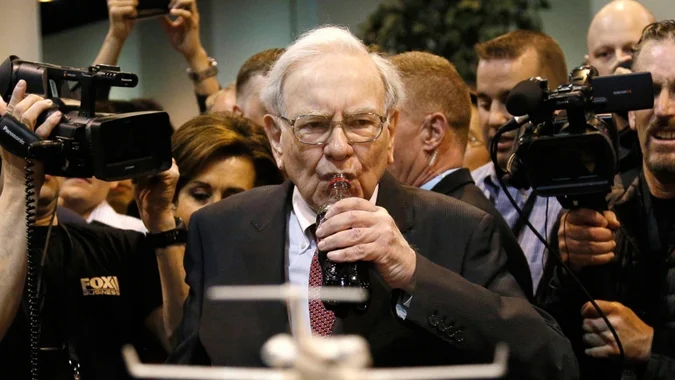
Warren Buffett drinking Coca Cola REUTERS/Rick Wilking
Similarly, he stepped in to support American Express during a corporate crisis in the 1960s, holding a major stake and serving on its board across the decades that followed. Even when Berkshire has exited a financial position, Buffett has often maintained personal ties — as was the case with The Washington Post: after helping stabilize the company as an investor and board member, Buffett continued as a trusted advisor and close friend to publisher Katharine Graham, long after Berkshire no longer held shares.This consistency proves to his teams that he genuinely values durability over short-term performance, encouraging them to make thoughtful, future-oriented decisions without fear of quarterly punishment.
By leading through personal examples, Buffett has shown that truly successful leadership is not about micromanagement — it’s about dedication to long-term vision, enduring values, and deep trust in your people.
The Legacy that Lasts
The eternal investor may soon step aside, but the values he championed will continue to inspire leaders, founders, and investors for decades to come. His principles of disciplined investing, empowered leadership, ethical management, and long-term thinking are timeless, relevant far beyond Berkshire Hathaway or the stock market.
In a world racing toward AI and new economic frontiers, Buffett’s wisdom remains timeless: focus on what endures, know what you own, reward integrity, and invest in people over assets.
Works Cited
Main K. Warren Buffett’s best leadership advice: the key to building trust. Inc. https://www.inc.com/kelly-main/warren-buffett-best-leadership-advice-key-to-building-trust.html. Accessed May 7, 2025.
Picture Perfect Portfolios. How Warren Buffett builds and maintains business relationships. https://pictureperfectportfolios.com/how-warren-buffett-builds-and-maintains-business-relationships/. Accessed May 7, 2025.
Stratink Consulting. The last oracle: what Warren Buffett’s retirement teaches us about legacy, voice, and the limits of replication. https://stratinkconsulting.com/inkurated/the-last-oracle-what-warren-buffetts-retirement-teaches-us-about-legacy-voice-and-the-limits-of-replication. Accessed May 7, 2025.
Lowenstein R. Buffett: The Making of an American Capitalist. New York, NY: Random House; 1995.
Franck T. Warren Buffett is retiring—here’s how he finds the best businesses to invest in. CNBC. https://www.cnbc.com/2025/05/06/warren-buffett-retiring-how-he-finds-the-best-businesses-to-invest-in.html. Published May 6, 2025. Accessed May 7, 2025.
The Washington Post Editorial Board. Warren Buffett retires—but his fortune is only part of his legacy. The Washington Post. https://www.washingtonpost.com/opinions/2025/05/06/warren-buffett-retire-fortune/. Published May 6, 2025. Accessed May 7, 2025.
Patel S. Warren Buffett’s leadership secrets: what every executive should learn. Medium. https://medium.com/@careerstrategist/warren-buffetts-leadership-secrets-what-every-executive-should-learn-35ebb642a42e. Published April 30, 2025. Accessed May 7, 2025.
Meyers M. Warren Buffett’s parting wisdom: a blueprint for builders. The Builders Daily. https://www.thebuildersdaily.com/warren-buffetts-parting-wisdom-a-blueprint-for-builders/. Published May 6, 2025. Accessed May 7, 2025.
Yahoo Finance. Warren Buffett on markets, economy, and more. YouTube. Published May 2025. Accessed May 9, 2025. https://www.youtube.com/watch?v=Tr6MMsoWAog&ab_channel=YahooFinance
Reuters. Buffett defends trade amid tariff pressures; Berkshire cash sets record. Reuters. Published May 3, 2025. Accessed May 9, 2025. https://www.reuters.com/business/buffett-defends-trade-amid-tariff-pressures-berkshire-cash-sets-record-2025-05-03/
Entrepreneur. Warren Buffett: I eat like a six-year-old. Entrepreneur. Accessed May 9, 2025. https://www.entrepreneur.com/business-news/warren-buffett-i-eat-like-a-six-year-old/24335
New York Times. Insider jury may hear top official at Berkshire. DealBook. Published January 29, 2012. Accessed May 9, 2025. https://archive.nytimes.com/dealbook.nytimes.com/2012/01/29/insider-jury-may-hear-top-official-at-berkshire/
Enter Labyrinth. What if Warren E. Buffett? An alternate. Enter Labyrinth. Accessed May 9, 2025. https://www.enterlabyrinth.com/p/what-if-warren-e-buffett-an-alternate




